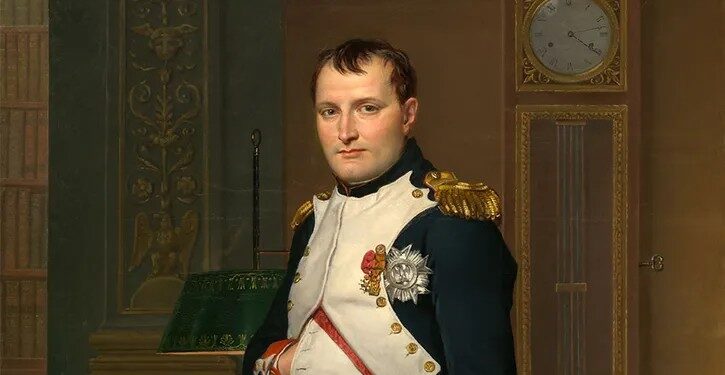On March 20, 1815, Napoléon Bonaparte made a dramatic return to Paris after escaping exile on the island of Elba. His arrival marked the beginning of the “Hundred Days,” a brief but significant period in European history that would end with his final defeat at the Battle of Waterloo.
Following his forced abdication in 1814, Napoléon had been exiled to Elba, a small island in the Mediterranean. Meanwhile, the Bourbon monarchy was restored under King Louis XVIII. However, discontent brewed in France. Many resented the return of the monarchy and longed for the leadership of the man who had once brought glory to France. Sensing an opportunity, Napoléon left Elba on February 26, 1815, with a small force of around 1,000 men.
Landing in southern France on March 1, he embarked on a bold march northward. Instead of facing resistance, he was met with support. Soldiers sent to arrest him instead joined his cause. The most famous moment of this journey came when Napoléon confronted royalist troops near Grenoble. Standing before them, he declared, “If any of you will shoot your Emperor, do it now.” Instead of firing, the soldiers cheered and joined him.
As Napoléon approached Paris, King Louis XVIII fled, realizing his rule was collapsing. On March 20, Napoléon entered the city unopposed, reclaiming power without a single shot fired. The French people celebrated his return, and he quickly sought to consolidate his rule.
During the Hundred Days, Napoléon worked to rebuild his empire. He promised a constitutional government, civil liberties, and peace with Europe. However, the Allied powers—Britain, Austria, Prussia, and Russia—saw him as a threat and prepared for war. Determined to strike first, Napoléon launched a military campaign in Belgium in June 1815.
His hopes of reclaiming European dominance ended at the Battle of Waterloo on June 18. Facing the Duke of Wellington’s Anglo-Allied forces and the Prussian army under Blücher, Napoléon suffered a decisive defeat. Forced to retreat, he abdicated again on June 22, 1815. This time, he was exiled to the remote island of Saint Helena in the South Atlantic, where he remained until his death in 1821.
Napoléon’s brief return to power demonstrated his enduring influence, but it also marked the final chapter of his reign. Though defeated, his legacy as a military genius and reformer remains a defining part of history.
newshub



Recent Comments